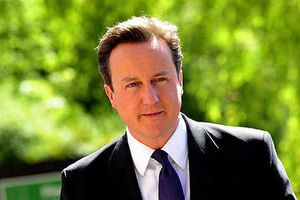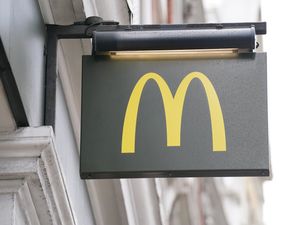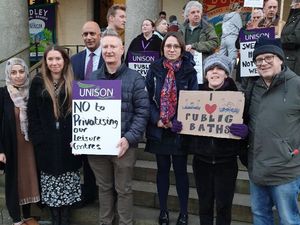Senior civil servants' pay revealed
The pay and perks of senior civil servants earning more than £150,000 were published today in the first step of a pledge to remove the "cloak of secrecy" from government information.

The pay and perks of senior civil servants earning more than £150,000 were published today in the first step of a pledge to remove the "cloak of secrecy" from government information.
A list compiled by the Cabinet Office showed the top earner was Office of Fair Trading chief executive John Fingleton, whose annual £279,999 package was one of 23 worth more than £200,000.
Ministers said they hope the openness will help restore public trust in politics and insisted the pay details are "just the start" of a wide-ranging bid to give the public more access.
By September they will also open up the remuneration of senior civil servants earning £58,200 and David Cameron has also pledged to force local councils to do the same.
The Prime Minister set out to Whitehall departments a detailed series of items they must make public - with hospitals to begin publishing data on hospital-acquired infection rates this week.
Government contracts over £10,000 will be published on a single website from September with items of central government spending over £25,000 and local government over £500 shortly afterwards.
Most of the 172 salaries had either already been published or unearthed by campaign groups such as the TaxPayers' Alliance, which publishes an annual Whitehall rich list.
The pressure group welcomed the official release as a "first step" but said further details such as taxpayer-funded pension deals should also be revealed.
Among other top earners on the list were NHS chief executive David Nicholson (up to £259,999) and Joe Harley, the IT director general and chief information officer at the Department for Work and Pensions (£249,999).
The Chief of the Defence Staff, Air Chief Marshal Sir Jock Stirrup gets up to £244,999 - one of 28 people at the Ministry of Defence paid more than the Prime Minister.
Cabinet Office minister Francis Maude is overseeing the process - and the creation of a public "right to data" - as the head of a Public Sector Transparency Board.
It will also include World Wide Web inventor Sir Tim Berners-Lee and mysociety website founder Tom Steinberg among outside experts.
Mr Maude said: "By being open and accountable we can start to win back people's trust.
"Openness will not be comfortable for us in government, but it will enable the public to hold our feet to the fire. This way lies better government.
"Transparency is key to our efficiency drive and will enable the public to help us to deliver better value for money in public spending.
"Today is just the start of what we plan to do. We are determined to set an example for the wider public sector, and to create a 'right to data' as a core part of government business."
The Government also points to academic studies suggesting allowing outside experts to build web applications and sites around government data could contribute up to £6 billion to the economy.
Matthew Elliott, chief executive of the TaxPayers' Alliance, said: "Publishing this data is long overdue but is nevertheless extremely welcome.
"Taxpayers have a right to know how their money is being spent and anyone earning a large amount of money in government should have their pay packet open to public scrutiny, so people can judge whether they are providing good value for money.
"This should be the beginning of a process where the pay of people in quangos, local government and the European Commission is also published to help the Government root out excessive salaries and wasteful spending."
The openness drive was launched as the Government negotiated the continuing fallout from the shock resignation of Liberal Democrat David Laws as Chief Secretary to the Treasury.
His sudden departure - after admitting he had channelled tens of thousands of pounds of public money in rent for his partner - was a severe blow to the coalition.
But Danny Alexander, the party colleague chosen to take over the role of fronting the Government's programme of deep spending cuts, immediately faced questions over his own finances.
He denied any wrongdoing after it was revealed he did not pay capital gains when selling a property he designated to Parliament as his second home.
Mr Alexander is said to have owned the south London flat for six years before becoming an MP in 2005, when he told the parliamentary authorities it was his second home.
At around the same time, he purchased a constituency home in Scotland.
According to the Telegraph, he claimed more than £37,000 in expenses on the flat before selling in June 2007.
"I have always listed London as my second home on the basis set out in the parliamentary rules as I spent more time in my constituency than I did in London," Mr Alexander said in a statement.
"I sold the flat in 2007 and moved to another flat but was advised that CGT was not payable because of the operation of final period relief, which exempts homes from CGT for 36 months after they stop being the main home."
It also emerged that, despite being showered with ringing endorsements and expectations of a swift return to office by senior colleagues, Mr Laws is considering quitting politics altogether.
The Yeovil MP has insisted he made no financial gain from not declaring his relationship with the partner he paid rent to and hid it only in a bid to keep his sexuality secret.
The MP referred his own case to the Commons sleaze watchdog.





